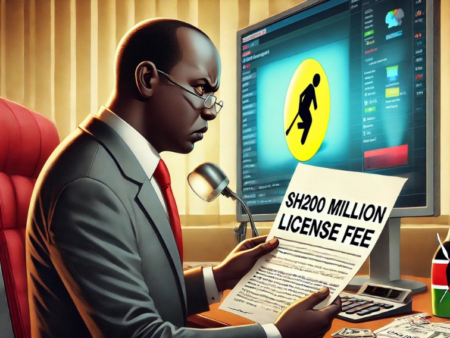SportPesa, a leading player in the Kenyan sports betting industry, faces a significant regulatory challenge that could jeopardize its operational license and Paybill numbers. This development stems from allegations that the company has continued to deduct a 12.5 percent excise tax on winnings, directly contravening a specific court order that blocks such deductions.
According to The Star, the Betting Control and Licensing Board (BCLB) has intervened, initiating a formal inquiry into the company’s practices and raising serious questions about its adherence to legal and regulatory obligations.
The Betting Control and Licensing Board (BCLB) has issued a formal notice to Milestone Games Limited, the holding company of SportPesa. In a letter dated November 17, BCLB chairperson Jane Makau summoned Milestone Games CEO Ronald Karauri. The letter demands an explanation for the company’s alleged non-compliance with a court order issued in Kakamega. The order, obtained by betting enthusiast Edward Okwama, blocks the deduction of a 12.5 percent excise tax from betting wins.
Compliance and Consequences
The BCLB’s letter, also addressed to Felix Koskei, chief of staff and head of public service, underlines the requirement for all licensees to hold valid tax compliance certificates as per the 2023/24 financial year licensing regulations.
Karauri is expected to physically appear before the BCLB to justify why SportPesa’s license should not be suspended. The board has warned that failure to comply will lead to a decision being made in the company’s absence.
Background of the Tax Dispute
The issue came to the fore following a correspondence from the Kenya Revenue Authority (KRA) to the betting company. The court had also barred the KRA from claiming the 12.5 percent excise tax from SportPesa. In August, the High Court granted betting fans a significant victory by halting the deduction of this excise duty on bets.
Justice Patrick Otieno directed KRA not to demand the tax pending the resolution of a lawsuit filed by Edward Okwama, who also included betting firms Milestone Gaming Limited and Standard Global East Africa Limited in his suit.
Okwama’s legal action hinges on the argument that the current law unfairly imposes a blanket deduction regardless of a bettor’s win or loss. He contends that the law fails to consider refunds for bets disrupted by unforeseen events, such as extreme weather. Furthermore, he asserts that excise duty should only apply to actual income or winnings, arguing that the current tax regime contravenes basic taxation principles.
Criticism of the Tax Regime
Okwama criticizes the tax regime as overly burdensome, especially for sports enthusiasts, who he claims make up over 57 percent of the Kenyan youth.
He views the current system as double taxation, combining the 12.5 percent excise duty with a 20 percent withholding tax on winnings. He argues this results in an unfair financial burden on bettors who lose their wagers.
The case raises significant questions about the taxation of the gaming industry and its impact on young Kenyans, many of whom engage in sports betting for entertainment and economic reasons.
The outcome of this case could have far-reaching implications for the future of sports betting taxation in Kenya.

